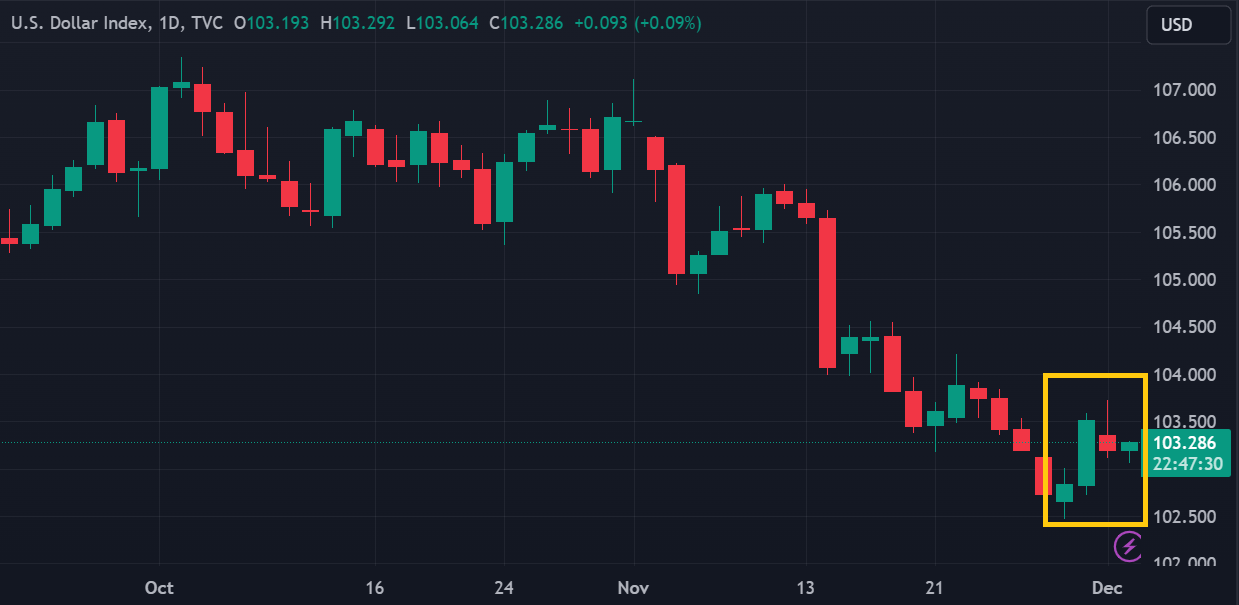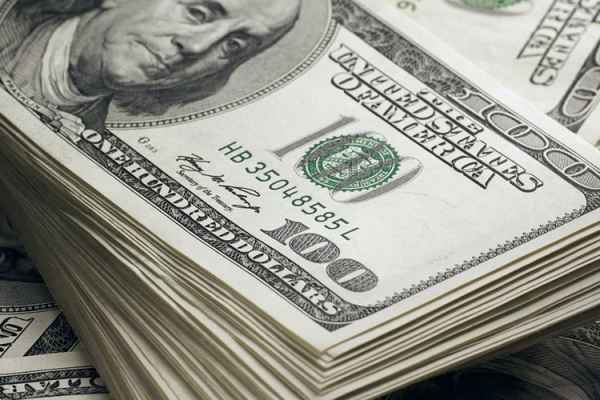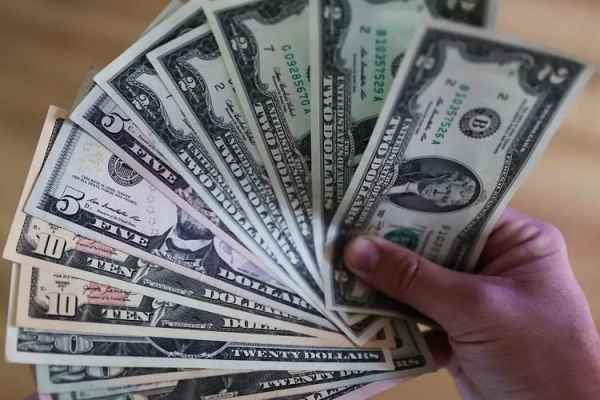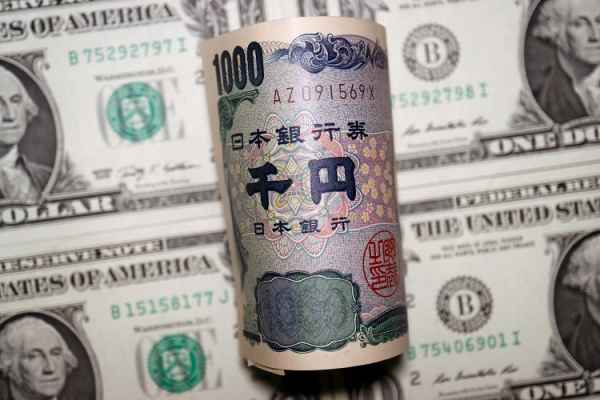US Fed Chairman Jerome Powell admitted that restrictive monetary policy has slowed the US economy.
The US Dollar failed to continue its rebound in late last week's trading session, as Fed Chair Jerome Powell delivered comments that were perceived as dovish by market participants. The US Dollar Index (DXY) was still stuck in the 103.20s when the news was written at the start of the Asian session on Monday (4/December).

Jerome Powell once again emphasized that speculation about interest rate cuts is premature; instead, he is ready to raise interest rates again if needed. However, he also mentioned that monetary policy has been very restrictive.
Powell acknowledged that restrictive monetary policy has slowed the US economy, as previously expected. Furthermore, he noted that the risks are now almost balanced between overly tight and less tight policies.
Market participants took Powell's statement as a sign of the end of the Fed's rate hike cycle for now. CME data shows an increase in the chance of a rate cut in March 2023 from 43% to 64%, and in May 2023 from 76% to around 90%.
The latest US economic data releases also support these bearish expectations. The Institute for Supply Management (ISM) reported the US Manufacturing PMI score to be below the 50.0 threshold for the 13th consecutive month - a situation that signals a sustained deterioration of activity in the sector.
Fortunately, the US dollar's current position is still supported by sharper weakness in interest rate expectations for its major rival currencies. EUR/USD has been depressed over the past few days as Eurozone inflation has almost reached the central bank's target.
This week traders and investors will again focus on US economic data, particularly Non-farm Payroll on Friday. Meanwhile, Fed officials are entering a "blackout" period when they are prohibited from giving speeches or interviews ahead of the FOMC meeting on December 12-13, 2023.

 Dedicated FREE FOREX VPS
Dedicated FREE FOREX VPS Free FOREX Virtual Private Server
Free FOREX Virtual Private Server MT4 Demo Contest, Get $500
MT4 Demo Contest, Get $500 Sign Up for an Account, Claim 60% Deposit Bonus
Sign Up for an Account, Claim 60% Deposit Bonus Free MT4/MT5 VPS 2024
Free MT4/MT5 VPS 2024 Send E-mail and Get Free Merchandise
Send E-mail and Get Free Merchandise $1K Refer a Friend Bonus for Pepperstone Pro clients
$1K Refer a Friend Bonus for Pepperstone Pro clients Maximize Your Earnings with 100% Deposit bonus
Maximize Your Earnings with 100% Deposit bonus Trade to Win, $5,000 Monthly Demo Contest
Trade to Win, $5,000 Monthly Demo Contest Claim 30% + 15% Deposit Bonus from LiteFinance
Claim 30% + 15% Deposit Bonus from LiteFinance






